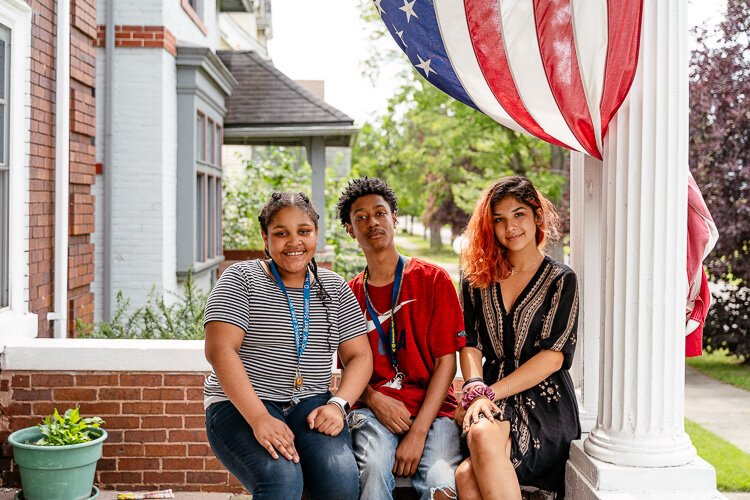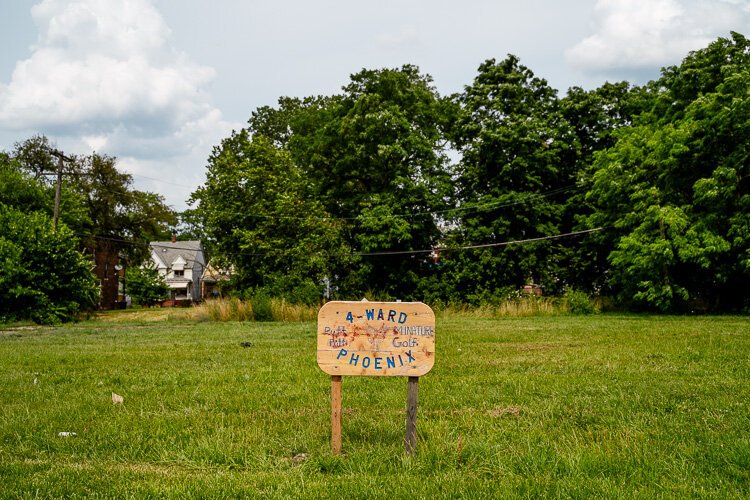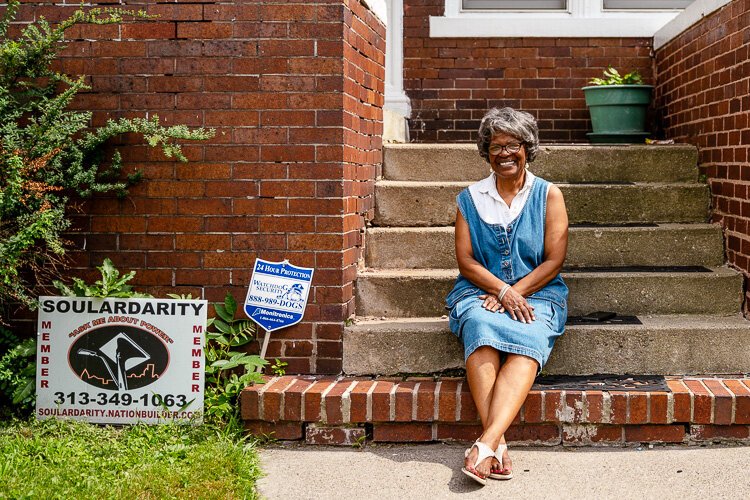North End Neighborhood Patrol looks out for neighbors — and ahead to the future
For years, the North End Neighborhood Patrol has kept watch over the neighborhood. But Phillis Judkins and her young ambassadors have a much bigger vision in mind for their neighborhood.
For more than 30 years, Phillis Judkins has worked to make North End a safe place for everyone. But Judkins doesn’t stop at neighborhood patrolling as a catalyst for change; she, with the help of her young patrollers, is working on bringing her vision of a community-led putt-putt golf center to reality in the neighborhood.
The North End Neighborhood Patrol received a $20,000 grant from Kresge, and $10,000 from a Patronicity matching grant, for the planning and grounds preparation for the putt-putt course. It’s a project that has been years in the making, but Judkins is dedicated to the cause, just as she’s been to North End since moving in the late ‘80s.
Years ago, as a member of the King Street Block Club in the North End, she was asked to be a block captain. From there she was asked to form a neighborhood patrol. Around the same time, she saw young men walking down the street and found out they were headed to the church for a meal because they didn’t have food. She vowed to find work for them. Putting two and two together, she created the patrol to give the young men an income and keep the neighborhood safe. That was 10 years ago. Today she has 35 people patrolling the neighborhood day and night and helping kids get to school safely.
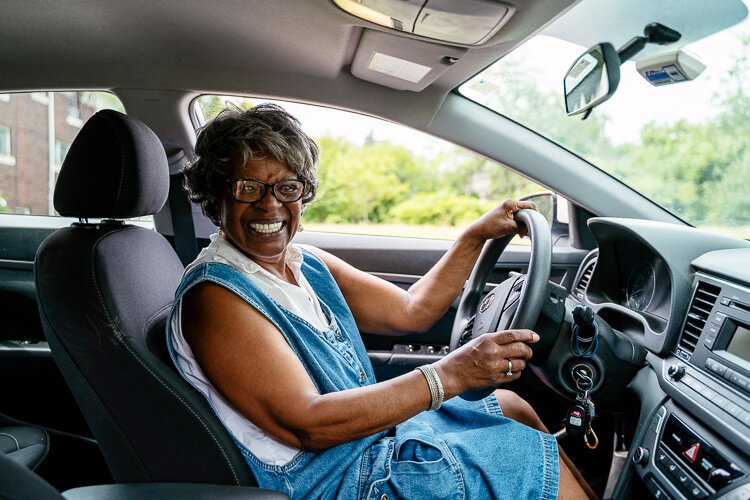
“It’s about safety for the community, for the children, for the people waiting on buses. It’s for everybody,” says Judkins. Last month, a patroller called an ambulance for a man who was sick on the street. Patrollers also call about abandoned vehicles in streets or alleys. “We do whatever is necessary to keep peace in the neighborhood,” Judkins says. “We don’t get involved, but we report.” She says that the patrol runs well, but there is a need for more money to fix up the safe house and get the putt putt going.
The patrol also assists people who are homeless in getting to warming centers and shelters. Patrollers call the police when they see or hear signs of trouble, and they clean up alleys and address overgrown lawns. “This is a very quiet neighborhood,” says Judkins. “We don’t have too many disturbances because we move around.”
What Judkins intuitively observes and feels about the benefits of the neighborhood patrol can be backed by research. According to the Crime Prevention Research Review (U.S. Dept. of Justice, Community Oriented Policing Services), studies have shown that neighborhood watch areas are associated with reducing crime. Furthermore, a National Crime Prevention Council survey showed that 41 percent of the U.S. population lives in communities patrolled by a neighborhood watch, making it the largest single organized crime prevention activity in America.
The North End Neighborhood Patrol covers an area that roughly runs from the Highland Park border south down to East Grand Boulevard and from Woodward Avenue east to I-75.
Judkins believes that by giving young people purpose, they’ll be less likely to turn to truant behaviors. She runs an afterschool program from the patrol’s “safe house” headquarters on King Street. Around 15 youth attend regularly and others come more sporadically. Along with receiving tutoring, the 12- to 18-year-old youth help Judkins with scheduling, odometer readings, and calculating payments for patrollers. The youth are an integral part of keeping the patrol running smoothly.
But these young people and Judkins have a much bigger vision in mind for their neighborhood. They want to use a seven-lot stretch of land, acquired for $7,250 from the Detroit Land Bank Authority, to build and operate a putt-putt golf center that will be run by the youth and other neighborhood residents. The lots are along a stretch of Oakland between Clay and Martin.
The architect and contractor are in place for the new putt-putt center, and Judkins has already acquired the needed licenses to begin building. North End Neighborhood Patrol has been maintaining the land. “The only thing missing now is the money,” says Judkins.
The bottom line for Judkins is bettering the neighborhood, particularly for young residents.
For the young people who are involved in the project, Judkins hosts area professionals to teach classes. A banker has presented on budgeting, a woodworker taught how to cut wood and make signs, and an electrician discussed lighting. Harmony Anthony-Tigue, 13, one of the youth participants, has also learned coding, how to make flyers, and how to host a radio show.
She has been involved with the neighborhood cleanups and Angel Night patrols, but is really excited about the putt-putt course because it gives her the opportunity to be a part of what the group says will be the first of its kind in the city.
“It’s fun being involved in something so big,” Harmony says, adding that the classes are preparing her and other youth to run the putt-putt center.
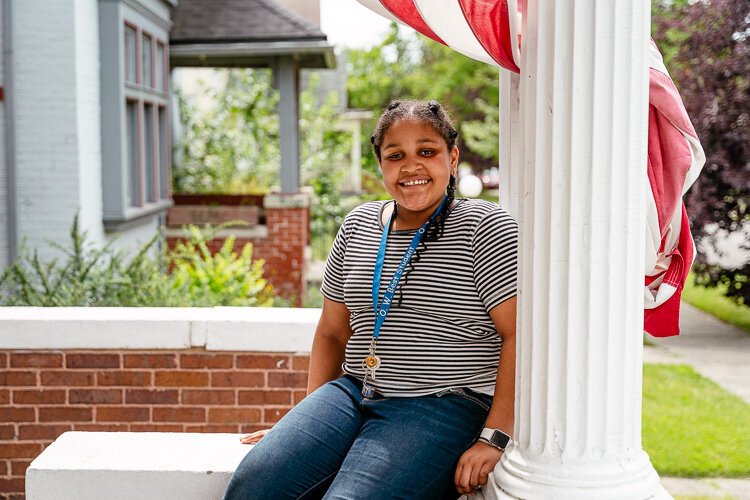
“The putt-putt is something that the children are going to run, that they’re going to get paid, by the hours they work, a stipend,” says Judkins. “And they’ll also receive, at the end of the month, after all the bills are done, money in their bank account to go to college.”
Judkins sees this money helping to pay for living expenses beyond tuition. “When my children went to college, both of them got scholarships, but I was still sending them three and four hundred dollars a month,” remembers Judkins. “Parents don’t have that money. So we got a plan to put money away for the children to go to college or a training program when they graduate from high school. Anything they want to further their education, we’ve got covered.”
While Judkins and the youth were hoping to open this year, it will likely be next year. She hopes to get a fence up and have a groundbreaking ceremony this year.
For a project that’s been four years in the making, Judkins has the patience to wait. She envisions the putt-putt being a catalyst for the neighborhood, bringing jobs for youth and other North End residents, and giving everyone “something to be proud of.”
This article is part of a series where we revisit stories from our On the Ground installment and explore new ones in the North End. It is supported by the Kresge Foundation.
